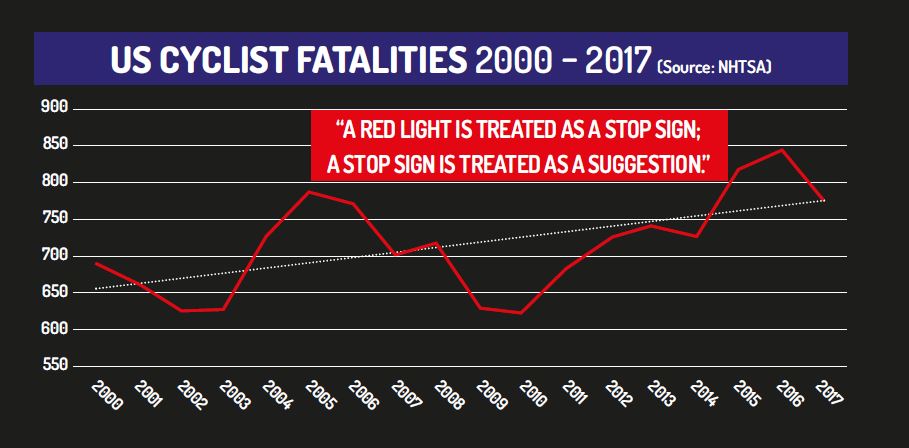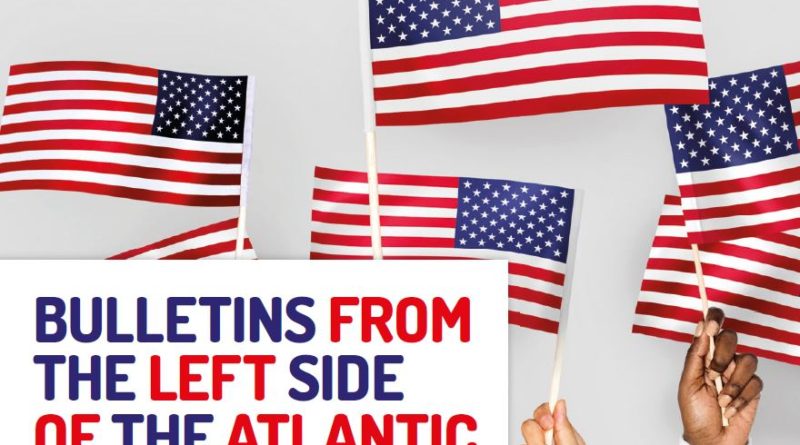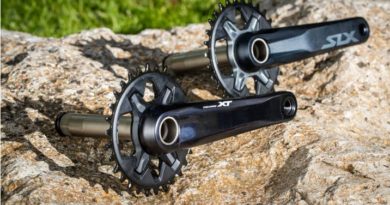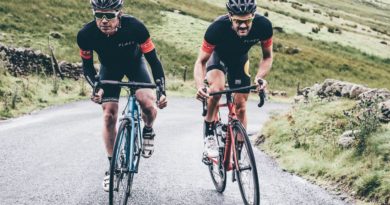VOSPER: Bulletins from the left side of the Atlantic – ASE, advocacy and safety
It’s shaping up to be another crazy year for the US bike business. Yes, again. And since the trouble we stir up on this side so often makes it to your side of the Atlantic, here’s a supersized American helping of three developing stories which may or may not be headed your way soon, from Rick Vosper…
GREEN MEANS GO, RED MEANS PAUSE BRIEFLY
The number of cyclists killed on US highways has increased by almost 20% since the turn of the millennium, according to the National Highway Transportation Safety Administration. Relations between cyclists and motorists grow increasingly fractious.
In the middle of this, a number of US states have been passing laws allowing cyclists to roll through stop signs, and to continue through red lights after stopping, whether the light has changed or not. As one source puts it, “A red light is treated as a stop sign; a stop sign is treated as a suggestion.”
I note the same question is coming under discussion in the UK. And, as in the UK, one prevalent notion is that cyclists are scofflaws who expect special privileges not afforded motorists, and the “Idaho Stop” is doing nothing to dispel this notion.
 People For Bikes’ spokesperson Morgan Lommele says: “Studies show that bicyclists are safer when they are able to get a head start at intersections, and they become more visible to the drivers behind them, which helps avoid crashes and keeps all road users safe.” But opinions are divided, even within the cycling advocacy community. In 2017, when the first Idaho Stop laws were being enacted, industry consultant John Schubert summed up the counter-opinion this way: “The vehicle code is vehicle-agnostic… What happens when we give one class of vehicle operator different rules? Among other things, they get crushed by turning trucks.”
People For Bikes’ spokesperson Morgan Lommele says: “Studies show that bicyclists are safer when they are able to get a head start at intersections, and they become more visible to the drivers behind them, which helps avoid crashes and keeps all road users safe.” But opinions are divided, even within the cycling advocacy community. In 2017, when the first Idaho Stop laws were being enacted, industry consultant John Schubert summed up the counter-opinion this way: “The vehicle code is vehicle-agnostic… What happens when we give one class of vehicle operator different rules? Among other things, they get crushed by turning trucks.”
Just to keep things interesting, The popular US TV show Blackish recently played the notion of swerving at cyclists “just to scare them” for laughs, eliciting the not unexpected (and by no means unjustified) response from the cycling community.
ASE, FUJI PERFORMANCE ET AL: “IT’S NOT OVER ‘TIL IT’S OVER,” OVER AND OVER
Apparently dissolving a vertically integrated multi-hundred-million dollar conglomerate of factories, wholesale brands and a 100+ storefront retailer network is, well, not as easy as it looks. The latest (8 April) installation
in the ongoing ASE (Advanced Sports Enterprises) slo-mo train wreck is a long line of unsecured creditors who have announced they are suing some of those who got preferential treatment in the company’s February 1 settlement.
he list of bag-holders includes a pair of Asian bike manufacturers (one of whom, Polygon, is a part owner of the Marin Bikes brand); Vista Sports, owner of the Giro/Bell/Camelbak group; the USA’s IRS tax agency, and shipping company UPS. These six alone are owed some US$16.4 million (£1.3 million). And there are at least 600 others.
hat’s a long line of creditors, and it says nothing whatever about the fate of the approximately 1,800 employees now out of work at various corporate locations and Performance Bicycles’ 104 former retail outlets. Even in the USA, that’s the most bike industry people out of work in a long, long time. A hearing is currently scheduled for June.
The big—and almost entirely unasked—question is whether ASE is an isolated example of an overextended retail operation taking down its otherwise profitable supply arm, or the tip of an industry iceberg afloat in a shrinking ocean that already has more bike and equipment brands than it can comfortable sustain.
SHIFTING THE BALANCE OF POWER IN THE INDUSTRY… AND IN ADVOCACY
At a time when the Bicycle Association of Great Britain is building its retailer-based resources, membership in the US-based National Bicycle Dealer Association (NBDA) is rumored to be at an all-time low. Retailers consistently tell me that contracts, especially with top brands like Trek and Specialized are increasingly onerous and one-sided, and that margins on all classes of products keep slipping. The balance of power between retailers and suppliers, they say, is clearly shifting… and not in retailers’ favour.
Now the American suppliers’ trade group, BPSA (Bicycle Products Suppliers Association) is merging with the industry’s largest advocacy group, People For Bikes. The deal has been in the works since 2017 and was approved
by boards of both groups in mid-April, subject to vote of the BPSA membership, which is expected to be forthcoming. What this means is that advocacy efforts will henceforth literally be whatever is in the interests of bicycle suppliers. The fifteen-member People for Bikes board of directors currently has exactly two retailers, one of whom is a vice president with the 140-store sporting goods giant REI. No word yet on how governance between the groups will be accomplished, but let’s suspect that the notion of putting any retailer in charge of the industry’s supplier group is strictly a nonstarter.
Retailers are understandably concerned.
 There’s more from Rick Vosper on Cycling Industry News.
There’s more from Rick Vosper on Cycling Industry News.



